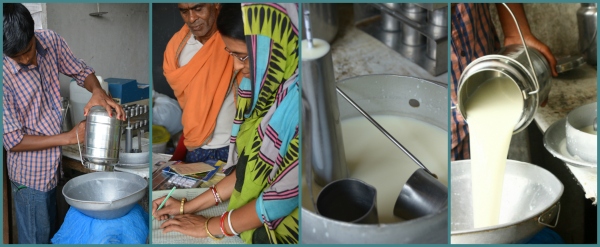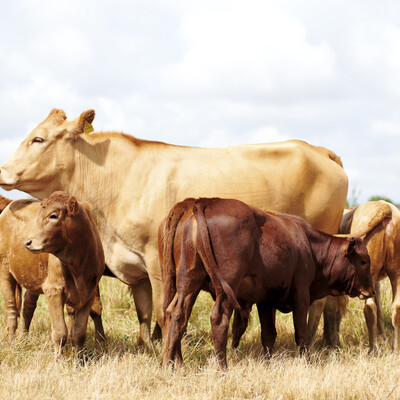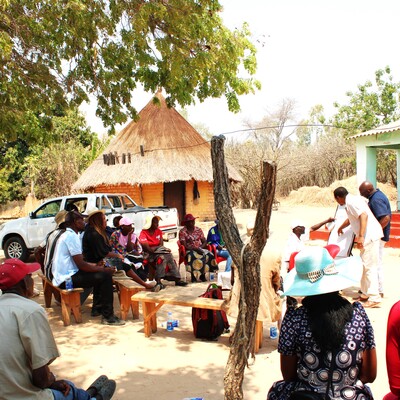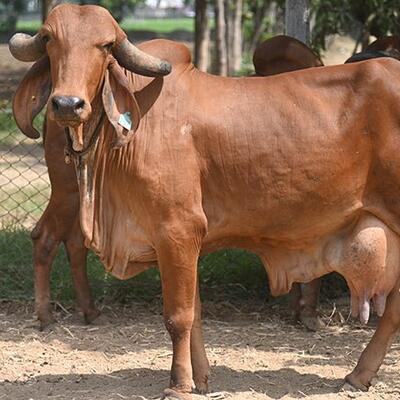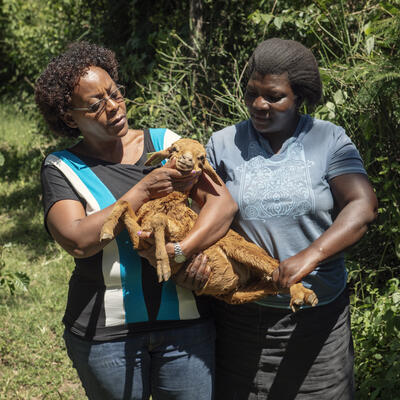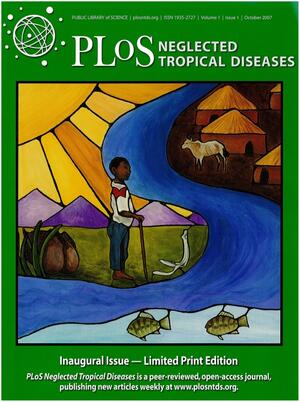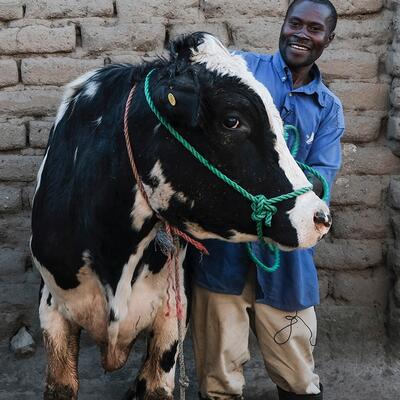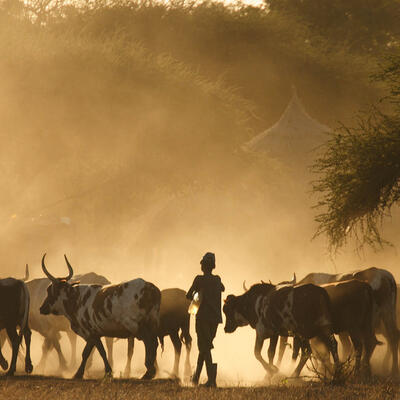
A ‘milk start-up’ aims to modernize India’s massive informal dairy economy in Odisha State
Small-scale dairying in Odisha State, India (photo credits: ILRI/Jules Mateo and Susan MacMillan)
Leveraging the arrival of the internet in rural areas of India, an entrepreneur and former executive with Tata Group, one of India’s largest conglomerates, zeroed in on the huge but underdeveloped and fragmented dairy industry.
‘. . . ‘India boasts the world’s largest dairy herd—some 300 million buffalo and cows that produce 165 million metric tons of milk annually. Yet the average farmer owns just two cattle, and most live on one-family farms on tiny plots that lack roads and electricity. . . .
Milk in India is distributed through millions of tiny store fronts, roadside stalls and home delivery men who sell it in milky masala tea, baked into sweets or simply as raw milk.
‘. . . Between cow and consumer, milk quality has suffered. Middlemen in India often sneak water, sugar or powdered milk into raw milk, adding volume and lowering the quality. The milk that independent middlemen gather from farmers and deliver to towns and villages is often unpasteurized and not properly refrigerated.
‘That is why almost all Indians boil their milk—which is where Mr. [Srikumar] Misra saw an opening. “There was a huge problem with food products that people could trust. The opportunity was addressing this trust deficit,” he said.
‘Mr. Misra and his wife . . . envisioned a brand with a snappy slogan that would define a premium milk product. They settled on Milky Moo. Motto: “No need to boil.”
‘They believed India’s emerging middle class would spend more on a high-quality, healthy product. Young parents were beginning to jump onto social media in meaningful numbers in India, opening a fresh path to building a new brand at warp speed. . . .
Venture capitalists have been increasingly active in India, though until recently nearly all of them have been looking to invest in Silicon Valley-like dot-coms.
Odisha state, the heart of Mr. Misra’s proposed new market, is one of India’s least-developed regions, far off the radar screen even of investors based in the country.
‘. . . Milk Mantra pays farmers more for milk than the informal collectors, and provides farmers with something those collectors never did: a small blue dairy diary where the quantity and the quality of the milk is recorded for them after they have their twice-daily milk collection tested for milk fat levels and contaminants at village collection points.
‘The information helps inform farmers what their milk is worth. Milk Mantra also provides veterinary support and information about feed to farmers. Raw milk from village farmers is trucked to regional collection points, then on to a factory where it is pasteurized and homogenized.
‘The company labored to monitor and control the supply chain, challenging entrenched relationships that tie rural villages to cities through an opaque web of middlemen in the informal economy. Convincing farmers they were better off switching took work. . . .
‘Milk Mantra has expanded relatively quickly and revenues have grown steadily at about 35% annually. Sales reached 1.8 billion rupees ($27 million) this fiscal year, while producing an average of 120,000 liters of milk daily. The company has 340 employees, with almost 900 other workers on contracts. . . .’
Read the whole article by Bill Spindle, A milk startup takes on 300 million cows, in the Wall Street Journal, 10 Jul 2018.






